
When I was a young postdoctoral researcher at Cambridge in 2002, a colleague took me to a fancy dinner at Peterhouse College, the oldest of Cambridge's colleges.
It was a six-course affair and, rather ridiculously, you had to change seats (and hence dinner companions) for each new course. During the first course, an older, bearded professor sitting opposite me asked, "So young man, what do you do?" I told him I was working on the genetics of childhood obesity.
"Ha! Do you know what your problem is?" he replied. "You give fat people an excuse." The disgust in his tone threw me and as I mobilised all my diplomatic nous to gently push back, I was saved by a literal bell, signalling that we had to switch seats for course number two.
It occurred to me later that the professor's view was shared by much of society. Obesity is seen as a problem of physics; people just need to eat less and move more. But although how we get to our body weight is reliant on physics, the real question is why? Why do people behave so differently toward food? Why do some people respond to stress by eating more and others by eating less? Why do some people love food, while for others it's simply fuel? Why, what, when and how much we eat have powerful societal and cultural underpinnings.
هذه القصة مأخوذة من طبعة December 2023 من BBC Science Focus.
ابدأ النسخة التجريبية المجانية من Magzter GOLD لمدة 7 أيام للوصول إلى آلاف القصص المتميزة المنسقة وأكثر من 9,000 مجلة وصحيفة.
بالفعل مشترك ? تسجيل الدخول
هذه القصة مأخوذة من طبعة December 2023 من BBC Science Focus.
ابدأ النسخة التجريبية المجانية من Magzter GOLD لمدة 7 أيام للوصول إلى آلاف القصص المتميزة المنسقة وأكثر من 9,000 مجلة وصحيفة.
بالفعل مشترك? تسجيل الدخول
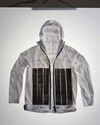
NOW YOU SEE ME, NOW YOU DON'T
Scientists around the world are working on ways to hide us from sight. But how close are we to developing tech that could make us invisible?

UNCORKED POTENTIAL
How much good can ditching drink for a month really do? Answer: a whole lot. In fact, science shows even short-term abstinence could unlock a cocktail of lasting benefits
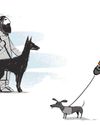
Scientists discover when humans and dogs became friends
The relationship spans thousands of years, but experts might have pinpointed the first connection
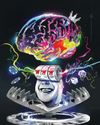
Why it's so hard to kick a gambling addiction
We now know that gambling can be as addictive as drugs, but there are factors that can make it even harder to quit

How much could Ozempic change our world?
The weight-loss drug has made headlines and broken sales records, but what does it mean for our future?
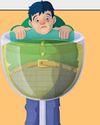
WHY DOES DRINKING ALCOHOL MAKE IT SO MUCH HARDER TO LOSE WEIGHT?
While enjoying the occasional glass of wine or pint of beer may seem harmless, regular or excessive alcohol consumption can significantly hinder your weight-loss journey for a few reasons:

Why do so many New Year's resolutions fail?
Establishing positive new habits is hard at any time of year. But there are ways to stop your attempts ending in failure
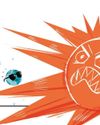
'Extreme' solar radiation storm could hit Earth
Sun-like stars may have tantrums far more frequently than we thought

HOW CAN I BANISH THE JANUARY BLUES?
Dark mornings, long chilly evenings and short days; many people find January tough.

Neutrinos are getting in the way of dark matter detection
These troublesome particles are difficult to detect, but they're starting to show up in places where they're not wanted